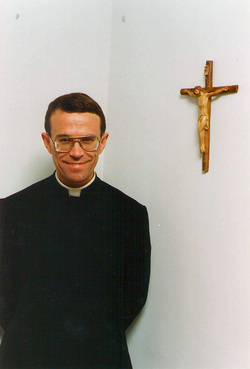
I. THE PROBLEM
It is now nearly 40 years since traditional Catholics, overwhelmed by the continual degradation of the state of the Church, have been troubled in conscience as to what they ought to do. Ought I to conform exteriorly, while of course refusing to accept the heresies? This is the position of those who elect to stay in their Novus Ordo parishes or attend the Indult Mass. Then there is the other excess, the position of the sedevacantists, who maintain that they are the only Catholics left and send everybody else, laymen, priests, bishops, Pope into hell. Another position is that of those who give up out of discouragement, on account of the apparent hopelessness of the situation. They will stay at home, recite their Rosary, attend Mass if and when they can easily do so. They want to keep their Faith, and save their souls, but in a private way. They refuse to get involved in the conflicts brought about by this terrible crisis. They will not, as they call it, take sides. They consider that they are not responsible for this terrible crisis in the Church, and that consequently there is nothing that they can do to fix it.
There is, however, a fourth possible attitude to embrace, a more profound approach to the crisis, one based upon the Catechism. It can, however, only be understood inasmuch as one grasps the real and essential nature of the crisis. We must consequently identify, amongst the myriad of different manifestations of modernism in the post-conciliar church, the fundamental, driving, doctrinal error, most opposed to the catechism. It is not Communion in the hand, the refusal of the propitiatory sacrifice in the New Mass or the abuses that we are so familiar with. It is not even dialogue with Protestants, the refusal to stand up for Catholic truth or to take a firm position for marriage and against contraception and abortion. It is not New Age, feminism or the replacement of Christ’s teaching with the social justice gospel of a better world – liberation theology as it is called. There is a more profound error that constitutes the underlying theology that penetrates all of these deviations and many more, a modernist perversion of Catholicism which has inspired the entire post-conciliar revolution. It is a new theology of the Church, or the new Ecclesiology, according to the word that has been coined to identify it.
MORE................




